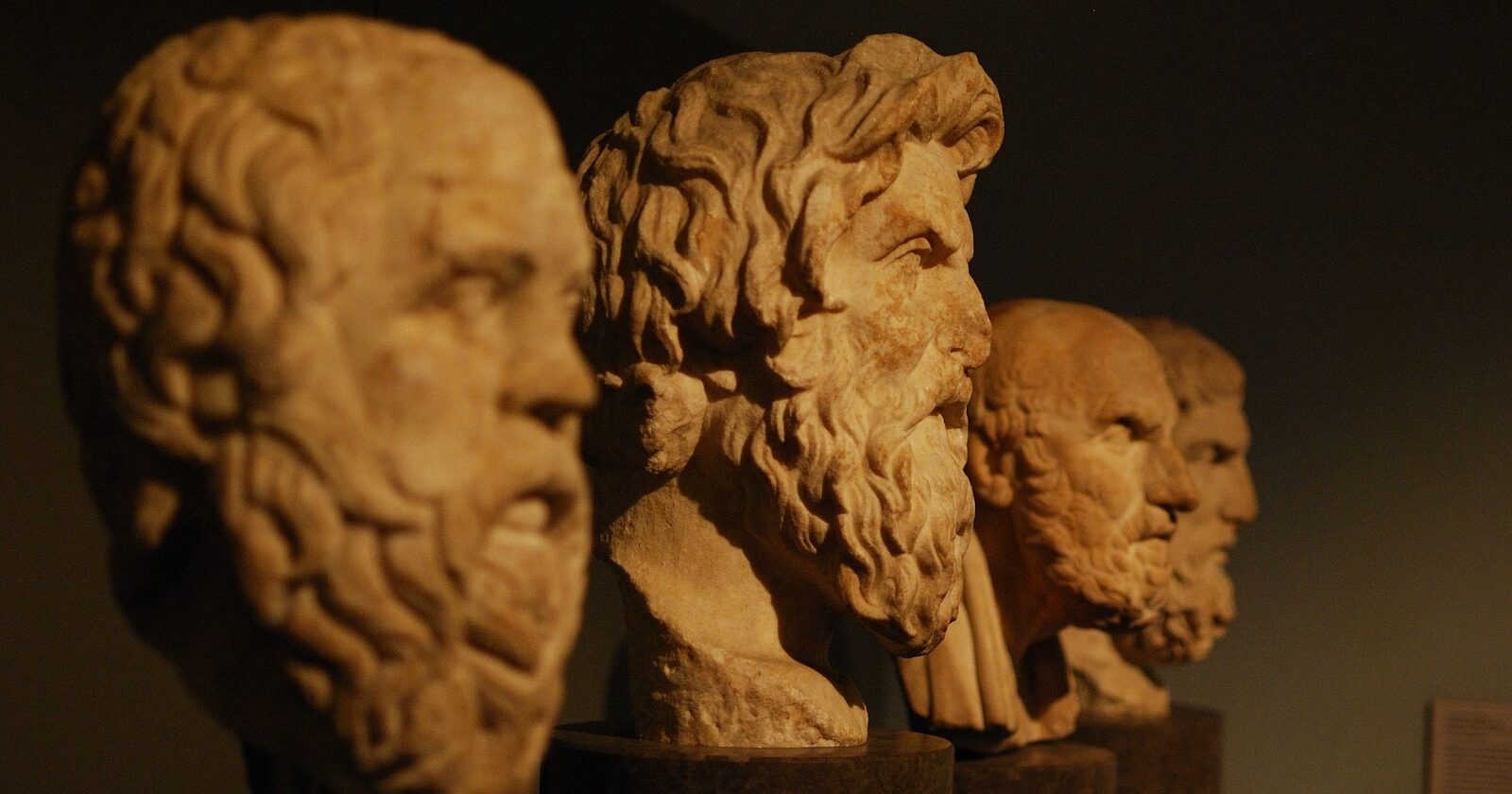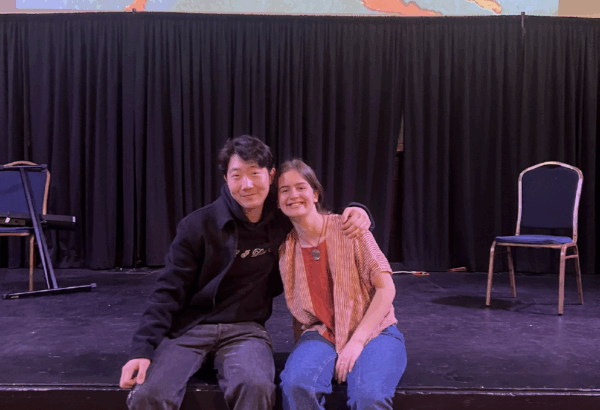Dialogue at Penn: my less-than-ideal first experience
When I was accepted to the University of Pennsylvania in December 2018, I was elated. It was my dream school, and I immediately began—like the good contemporary teenager I was—to follow other newly admitted members of my class on social media. I felt as though I had suddenly made hundreds of new friends. They congratulated me for my acceptance, and I did the same, becoming increasingly excited for my time at Penn.
I imagined that I would grow my intellect and my philosophy in college: my classes would challenge me academically, but I also expected that the new perspectives of other students would challenge me philosophically. I expected to dialogue with young people from all around the world, all across the political spectrum, and many religious convictions. I looked forward to such a unique opportunity for discussion.
In January of the same school year, I attended a political demonstration and posted about it on social media. I didn’t expect too much of a response, though I was aware that the belief on which the demonstration was predicated is unpopular among young people.
Rather than going largely unliked and unshared as I expected, my post incited hundreds of comments: many were outraged, and many were from my future classmates. There were certainly reassuring comments—such as one from a dissenting classmate that nonetheless expressed her approval of my use of the right to peacefully demonstrate—but many attacked my character and my level of intelligence.
I was devastated. I felt that I had utterly ruined any chances I once had of making meaningful friendships in college, and that I had fundamentally misunderstood the meaning of a university education.
I certainly didn’t expect everyone to agree with my opinion, but I did expect to be met with some degree of respect and curiosity as to why I might hold such a belief. I was hurt that few attempted to engage me in meaningful conversation about the topic. Admittedly, it is difficult to hold a complex dialogue via social media, but I firmly believe that civil dialogue ought to at least be our goal in interacting with those with whom we disagree online.
To me, it seemed apparent that a college education ought to be concerned with seeking the truth in its various forms (scientific, ethical, civic, religious, etc.). How can we truly learn from one another, however, if we aren’t committed to humble, respectful philosophical conversation? Or if we aren’t aware of our own logical fallibility? How might we make advances closer toward the truth of things, in order that we may better society and ourselves?
The SNF Paideia Program was founded from the conviction that a humble, open approach to dialogue within our diverse communities is one of the keys—perhaps the key—to repairing our floundering public discourse.
Is there a solution?
There is a term for this sort of approach to dialogue that us Paideia Fellows have discussed in class: intellectual humility.
In one study, intellectual humility is described as involving: “(a) having an accurate view of one’s intellectual strengths and limitations and (b) the ability to negotiate ideas in a fair and inoffensive manner.”
Another study by psychologist Elizabeth Krumrei-Mancuso concluded that “Characteristics of intellectual humility such as recognizing one’s cognitive limits, having a non-defensive stance toward one’s beliefs, and respecting others’ viewpoints may put one in a unique position to experience empathy and gratitude, and by extension, a host of prosocial values.”
Intellectual humility, then, is a stature of receptivity to and respect of others’ ideas per an accurate awareness of one’s own intellectual abilities. It therefore necessitates the acknowledgement that one cannot always be in the right, and that others sometimes may have more insight.
In other words, for the scenarios in which the truth has not yet been universally agreed upon, intellectual humility is needed from both sides for any advance toward the truth to be made.
Intellectual humility in contentious public discussion would enable the involved parties to be open to changing their minds, allowing truth to ultimately prevail. This ability is integral to the success of individual dialogues, as well as the functioning of communities and societies. We in America live in a delicate civic balance, and I think that we have begun to lose that balance through our lack of intellectual humility in important discussions.
Seeking truth: a vision for civic education
I remember a time when I was convinced that my ideas were without question the right ones: as a new student in my sophomore year of high school, I listened to my peers ask profound questions of one another, but I wasn’t used to this sort of intellectual conversation.
I said things like: “Are you kidding? I don’t know how any informed, contemporary person could ever believe that…” and “You just don’t understand…” in discourse with my peers, at first. Once I stopped to truly consider their arguments, however, our conversations became much more fruitful. I altered many of my views in high school—and I continue to do so—as a result of arguments put forth by peers who humbly discuss the big questions for the sake of coming closer to the truth. Previously skeptical, I became a devoted Christian in high school, also partially by virtue of intellectual discussion with peers.
Their openness to dialogue and questioning—this intellectual humility—taught me the importance of civil discussion, and productively challenged many of my assumptions and beliefs. Somehow, dialogue has led me to become more open to questioning my perspective until I brush up against things that ring with truth, even if I have to relinquish my ironclad hold on my ego.
This is the great beauty of learning how to dialogue civilly. It not only enables us to learn from each other, but it also enables us to personally come closer to the truth of things.
Our founders envisioned a country in which the freedom of speech and religion enabled citizens to dialogue so that they could do just this—fix faults in their thinking and way of life. For example, Thomas Jefferson in his Notes on the State of Virginia says, “Reason and free inquiry are the only effectual agents against error.”
How might we practically restore this vision? How might we encourage intellectual humility in conversation, or teach it to our younger generations? Could certain methods of education encourage this virtue?
“Discover mode” in SNF Paideia
Social psychologist Jonathan Haidt, in a conversation hosted by the Paideia Program, said that he “believes American colleges need to help their students spend more time in ‘discover mode’ – and less in ‘defend mode.’” He explains that each organism’s life is dominated by the decision to “approach” or to “avoid” different situations.
“Discover mode”—or a state of searching for possibilities—is the human brain’s equivalent of approaching, and “defend mode”—or a state of attempting to defeat one’s enemies—the equivalent of avoiding.
College, he thinks, therefore ought to be a place in which students are searching for moral possibilities and the very truth of life (e.g., “What is morally correct?”) rather than a place in which students work to defend their ideas (e.g., “I know that this is correct, and you don’t, so you’re stupid!”).
What if we college students (and our professors) made an intentional effort to discourse openly and humbly with one another about the big questions? I wonder how much intellectual fruit we would bear if we didn’t fear retribution from one another, or fear being wrong? How many ethical, political, and social advances would be made if we thought less of our own opinions? Or if we worked to intentionally encourage intellectual humility in our schools and universities?
Through the SNF Paideia Program’s initiatives, such as its fellowship program, I have been able to join peers who are very dissimilar from myself in civic conversation through courses and our Fellow seminars. It has deeply encouraged me to join students and professors who are all dedicated to intellectually humble discourse for the sake of mending our polarized democracy.
The Program’s vision of education is not only in alignment with what I imagined college would be, but it is also in alignment with the current research on the benefits of intellectual humility in dialogue. This program, along with my past and continued dialogue with peers, gives me hope that our young generations can indeed learn to dialogue civilly.
It is my hope—our hope—that by striving for intellectual humility, we might honor our American founders’ vision for our country, grow our communities, and even perhaps ennoble our souls.
If you like this content and want more, follow us on social media and subscribe to our listserv.



